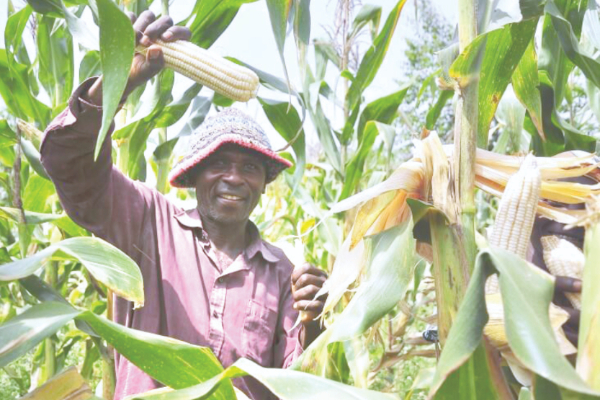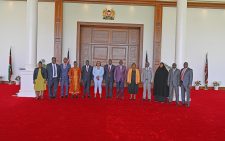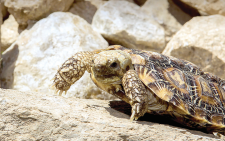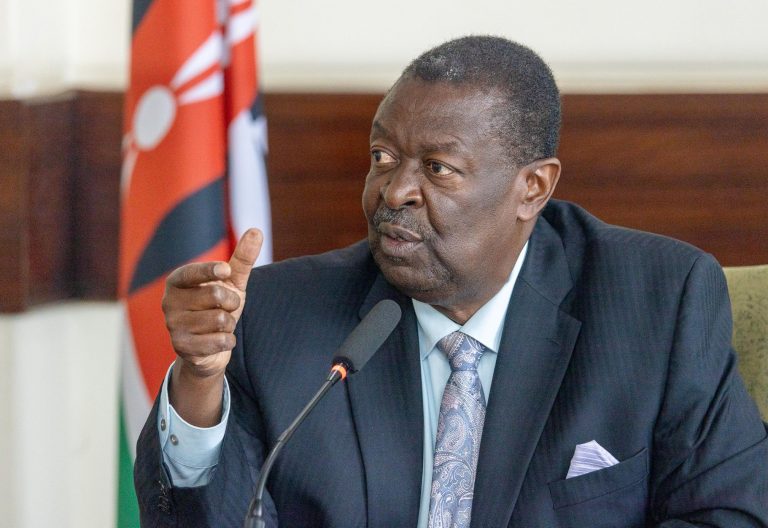State to import 10m bags of GMO maize, declares Kuria

Trade and Industry Cabinet Secretary, Moses Kuria is today set to clear the way for the importation of 10 million bags of duty-free Genetically Modified Organisms (GMO) maize to mitigate the effects of hunger.
Kuria yesterday announced that he will today sign the gazette notice authorising the shipment of 10 million bags of duty-free maize into the country. The duty-free window for the importation of the maize is expected to last six months.
But in what is likely to cause a storm, especially among opposition politicians and groups opposed to the lifting of the ban on GMO products, Kuria, albeit with a light touch stated that there was no harm in bringing in GMO maize as Kenyans were, in any case, dying from so many causes.
“We have two deliberate steps. One is that we have so many things that can kill us in this country,” he said at the Strathmore Business School during a Micro, Small and Medium Enterprises forum. “Living in this country you are a candidate for death,” he said, sending the audience into sustained laughter.
Kuria said that because there were so many things competing for death, there would be nothing wrong to add GMOs to that list.
“That’s why we have deliberately decided to allow GMOs into this country,” he said. He explained that the decision to allow the importation of duty-free maize was because the country is experiencing a dire food shortage which has exposed more than four million Kenyans to hunger.
“Until we are satisfied that we have enough maize in this country, our staple food, tomorrow I am signing a gazette notice to allow for the importation of up to 10 million bags of maize, duty-free for the next six months until we achieve food security,” he said arguing that it is the cardinal responsibility as a government to ensure the country is food secure. “I know this will offend some people, from the GMO opponents and importers, but I will do this and will do it as government,” he maintained.
“Even if we will lose some votes here and there, but at least we will see the Kingdom of Heaven,” Kuria continued.
Skewed research
The Cabinet approved the lifting of the ban on October 3, paving way for the cultivation and importation of GMO crops including maize after a decade.
In a statement, the government said the lifting of the ban imposed in 2012 will improve food security in the country amid the ravaging drought that has caused hunger in more than 20 counties.
“In accordance with the recommendation of the Task Force to Review Matters Relating to Genetically Modified Foods and Food Safety, and in fidelity with the guidelines of the National Biosafety Authority on all applicable international treaties including the Cartagena Protocol on Biosafety (CPB), Cabinet vacated its earlier decision of November 8, 2012 prohibiting the open cultivation of genetically modified crops and the importation of food crops and animal feeds produced through biotechnology innovations, effectively lifting the ban on Genetically Modified Crops,” the government said.
The move drew an uproar from Azimio la Umoja leaders including Raila Odinga and Kalonzo Musyoka who stated that GMOs will not only threaten the livelihoods of small-scale farmers in the country but also pose a threat to the health of every Kenyan.
“Kenya lacks adequate capacity to test for GMO traits and the impact it has on health. We, therefore, place the lives and livelihoods of our people at very serious risk by admitting GMOs into Kenya,” Kalonzo stated.
Kalonzo alleged that the lifting of the ban was based on skewed research sponsored by multinationals with certain interests in GMO technology.
“Against the backdrop of this lift, the Ruto administration had met several delegations who have been aggressively lobbying for the lifting of the GMO ban in Kenya. We are also aware that these multinationals have sponsored skewed research on GMO biotechnology calculated to reach a desired outcome,” he alleged.









